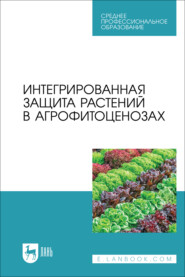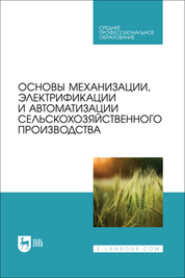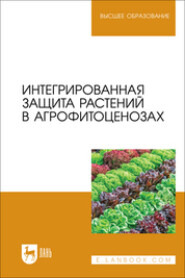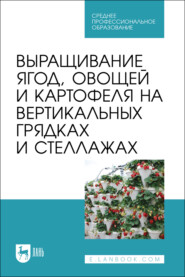По всем вопросам обращайтесь на: info@litportal.ru
(©) 2003-2024.
✖
Short-Stories
Настройки чтения
Размер шрифта
Высота строк
Поля
"Something better."
They sat there for a while, Thord with downcast eyes, the priest with his eyes fixed on Thord. Presently the priest said, slowly and softly, —
"I think your son has at last brought you a true blessing."
"Yes, I think so myself," said Thord, looking up, while two big tears coursed slowly down his cheeks.
BIOGRAPHY
Björnstjerne Björnson, Norse poet, novelist, dramatist, orator, and political leader, was born December 8, 1832, and died in Paris, April 26, 1910. From his strenuous father, a Lutheran priest who preached with tongue and fist, he inherited the physique of a Norse god. He possessed the mind of a poet and the arm of a warrior. At the age of twelve he was sent to the Molde grammar school, where he proved himself a very dull student. In 1852 he entered the university in Christiana. Here he neglected his studies to write poetry and journalistic articles.
In politics Björnson was a tremendous force. Dr. Brandes has said; "To speak the name of Björnson is like hoisting the colors of Norway." He was honored as a king in his native land. He won this recognition by no party affiliation, but by his natural gifts as a poet. His magnetic eloquence, great message, and sterling character compelled his countrymen to follow and honor him. He says of his success in this field: "The secret with me is that in success as in failure, in the consciousness of my doing as in my habits, I am myself. There are a great many who dare not, or lack the ability, to be themselves." For his views on political issues the following references may well be used: Independent. January 31, 1901, pp. 253-257; Current Literature, November, 1906, p. 581; and Independent, July 13, 1905, pp. 92-94.
Björnson and Ibsen, the two foremost men of Norway, were very closely associated throughout life. They were schoolmates, and both were interested in writing and producing plays. Ibsen's son, Dr. Sigurd Ibsen, married Björnson's daughter, Bergilot. These two great writers were direct contrasts in nearly everything: Björnson lived among his people, Ibsen was reserved; Björnson played the rôle of an optimistic prophet, Ibsen, that of a pessimistic judge; the former was always a conciliatory spirit, the latter a revolutionist; and Björnson proved himself a patriotic Norwegian, Ibsen, a man of the entire world.
Lack of space forbids the inclusion of a list of Björnson's writing's. High school teachers will find suitable selections in the list of collateral readings that follows. Those who wish a complete bibliography of his works will find it in Bookman, Volume II, p. 65. Translations of his works by Rasmus B. Anderson, Houghton Mifflin Co., and Edmund Gosse, the Macmillan Co., will furnish students extensive and standard readings of this master story-teller.
CRITICISMS
Björnson, in his masterly character delineations, seldom produces portraits. He gives the reader suggestive glimpses often enough and of the right quality and arrangement to produce a full and vigorous conception of his characters. His female parts are especially well done. His characters present themselves to the reader by unique thinking and choice expressions. Students should analyze The Father for this phase of character building. Note also the simplicity of the words, sentences, paragraphs, and complete story arrangement, the author's originality of story conception and expression, his short, passionate, panting sentences, the poetic atmosphere that sweetens and enriches his virile writing, and the correct, religious pictures he paints of his beloved northland.
After having read a number of selections from Björnson, students will see that he has a wonderful breadth of treatment for every imaginable subject. He is so universal in his choice of subjects that Lemaître in his Impressions of the Theatre half-humorously and half-ironically puts these words in Björnson's mouth, "I am king in the spiritual kingdom," and "there are two men in Europe who have genius, I and Ibsen, granting that Ibsen has it."
GENERAL REFERENCES
Adventures in Criticism, A.T.Q. Couch.
Essays on Modern Novelists, William Lyon Phelps.
"Björnsoniana," Dial, January 16, 1903, pp. 37-38.
"Prophet-Poet of Norway," Cosmopolitan, April, 1903, pp. 621-631.
"Three Score and Ten," Dial, December, 1902, pp. 383-385.
COLLATERAL READINGS
Lectures, Volume I, John L. Stoddard.
The Making of an American, Chapters 1, 7, and Jacob Riis.
Myths of Northern Lands. Guerber.
Synnove Solbakken, Björnson.
A Happy Boy, Björnson.
The Fisher Maiden, Björnson.
The Bridal March, Björnson.
Magnhild, Björnson.
A Dangerous Wooing, Björnson.
The Eagle's Nest, Björnson.
The Bear Hunter, Björnson.
Master and Man, Leo Tolstoi.
The Doll's House, Henrik Ibsen.
The Minister's Black Veil, Nathaniel Hawthorne.
The Ambitious Guest, Nathaniel Hawthorne.
The Beeman of Orn, Frank R. Stockton.
A Branch Road, Hamlin Garland.
Mateo Falcone, Prosper Mérimée.
The Death of the Dauphin, Alphonse Dadoed.
The Birds' Christmas Carol, Kate Douglas Wiggin.
Tennessee's Partner, Bret Harte.
THE GRIFFIN AND THE MINOR CANAAN[5 - Written in 1887. This story is used by permission of and special arrangement with Charles Scribner's Sons, publishers.]
By Frank R. Stockton (1834-1902)
Over the great door of an old, old church which stood in a quiet town of a far-away land there was carved in stone the figure of a large griffin. The old-time sculptor had done his work with great care, but the image he had made was not a pleasant one to look at. It had a large head, with enormous open mouth and savage teeth; from its back arose great wings, armed with sharp hooks and prongs; it had stout legs in front, with projecting claws; but there were no legs behind, – the body running out into a long and powerful tail, finished off at the end with a barbed point. This tail was coiled up under him, the end sticking up just back of his wings.
The sculptor, or the people who had ordered this stone figure, had evidently been very much pleased with it, for little copies of it, also in stone, had been placed here and there along the sides of the church, not very far from the ground, so that people could easily look at them, and ponder on their curious forms. There were a great many other sculptures on the outside of this church, – saints, martyrs, grotesque heads of men, beasts, and birds, as well as those of other creatures which cannot be named, because nobody knows exactly what they were; but none were so curious and interesting as the great griffin over the door, and the little griffins on the sides of the church.
A long, long distance from the town, in the midst of dreadful wilds scarcely known to man, there dwelt the Griffin whose image had been put up over the churchgoer. In some way or other, the old-time sculptor had seen him, and afterward, to the best of his memory, had copied his figure in stone. The Griffin had never known this, until, hundreds of years afterward, he heard from a bird, from a wild animal, or in some manner which it is not now easy to find out, that there was a likeness of him on the old church in the distant town. Now this Griffin had no idea how he looked. He had never seen a mirror, and the streams where he lived were so turbulent and violent that a quiet piece of water, which would reflect the image of anything looking into it, could not be found. Being, as far as could be ascertained, the very last of his race, he had never seen another griffin. Therefore it was, that, when he heard of this stone image of himself, he became very anxious to know what he looked like, and at last he determined to go to the old church, and see for himself what manner of being he was. So he started off from the dreadful wilds, and flew on and on until he came to the countries inhabited by men, where his appearance in the air created great consternation; but he alighted nowhere, keeping up a steady flight until he reached the suburbs of the town which had his image on its church. Here, late in the afternoon, he alighted in a green meadow by the side of a brook, and stretched himself on the grass to rest. His great wings were tired, for he had not made such a long flight in a century, or more.
The news of his coming spread quickly over the town, and the people, frightened nearly out of their wits by the arrival of so extraordinary a visitor, fled into their houses, and shut themselves up. The Griffin called loudly for some one to come to him, but the more he called, the more afraid the people were to show themselves. At length he saw two laborers hurrying to their homes through the fields, and in a terrible voice he commanded them to stop. Not daring to disobey, the men stood, trembling.
"What is the matter with you all?" cried the Griffin. "Is there not a man in your town who is brave enough to speak to me?"
"I think," said one of the laborers, his voice shaking so that his words could hardly be understood, "that – perhaps – the Minor Canon – would come."
"Go, call him, then!" said the Griffin; "I want to see him."
The Minor Canon, who filled a subordinate position in the church, had just finished the afternoon services, and was coming out of a side door, with three aged women who had formed the week-day congregation. He was a young man of a kind disposition, and very anxious to do good to the people of the town. Apart from his duties in the church, where he conducted services every week-day, he visited the sick and the poor, counseled and assisted persons who were in trouble, and taught a school composed entirely of the bad children in the town with whom nobody else would have anything to do. Whenever the people wanted something difficult done for them, they always went to the Minor Canon. Thus it was that the laborer thought of the young priest when he found that some one must come and speak to the Griffin.

















